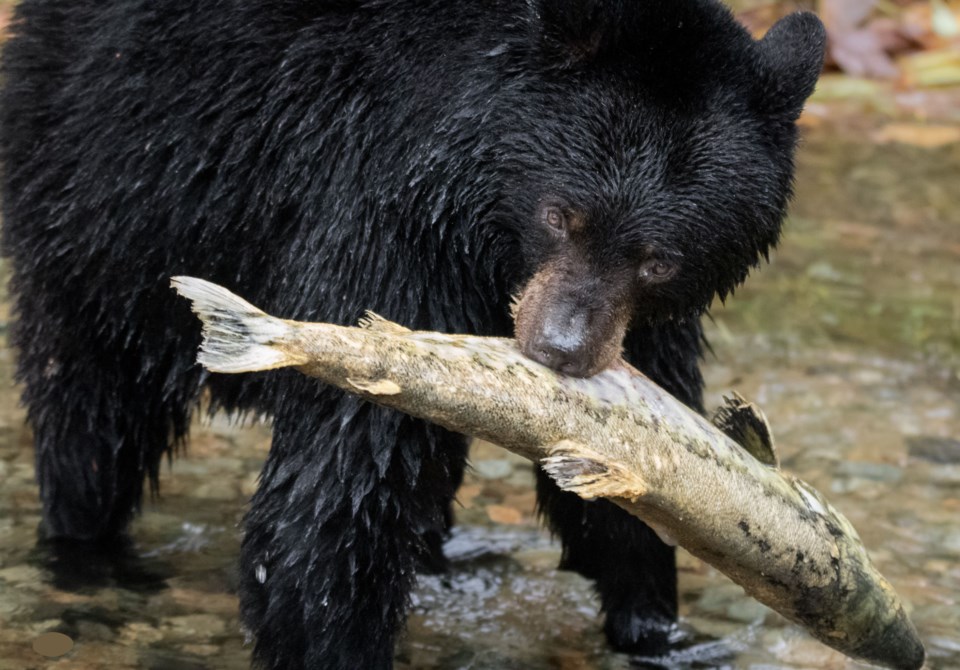As summer winds down and fall approaches, black bears become more active in their search for food. For 20 hours a day, their focus is solely on consuming calories to prepare for winter dormancy. This increase in activity inevitably results in more human-bear encounters.
As responsible guests in their habitat, we want to understand bear behaviour.
Bears are very intelligent and they are adapting to increased human and dog activity in their home. All bears have different levels of personal space, so remember never to approach a bear when you see one because you could pressure them to become defensive.
Bears do not fear people. When a human-bear encounter happens, most likely the bear was minding its own business eating or looking for food and the person got in the way. Their intentions are seldom aggressive.
Fat means survival
The fat reserves that bears build up in the fall are integral to their survival. These reserves have to last well into the following spring and even longer, because bears need to be strong enough to mate and reproduce when they come out of hibernation.
Mating season for bears takes place in the spring and summer months, and fertilized eggs will only develop if a female bear has gained enough weight during the fall period of excessive eating.
Given the popularity of our forests, with mountain bikers, trail runners, hikers and dogs, there is often little time during daylight hours for bears to forage in their home without interruption.
Our recreational activities in bear habitat are a choice—while a bear eating for survival is not.
Black bears expend a lot of energy changing their routes, climbing trees or stepping away from a natural food source to avoid us.
The responsibility falls on our shoulders to know these important facts and to follow the suggestions below all year round, and especially during the late summer and fall to give bears their space to fatten up without interruption.
Here are actions we can all take to reduce our impact and the risk of a surprise encounter.
1. Always be aware of your surroundings. No headphones;
2. Never intentionally approach a bear. If you see a bear ahead in the distance, take a different route;
3. Your voice is your best tool in the forest. Don’t rely on a bear bell, as they don’t identify you as a human. Be louder on narrow, overgrown trails and when near a water source to warn bears;
4. Travel in groups to make more noise;
5. Stay on established trails;
6. Keep dogs on leash! Off-leash dogs pressure bears to respond defensively. They disturb the bears’ natural behaviour and can push young bears out of their area and into the path of dominant males;
7. Always carry bear spray, have it immediately accessible, and know how and when to use it. Bear spray is a non-lethal tool that can protect us, and bears, in the rare case of a negative, close encounter.
Black bears are calm animals and not aggressive by nature. If you encounter a bear, stay calm, speak to them in a calm voice and slowly back away to show them you are not a threat.
Be mindful of seasonal bear foods. As salmon return to our creeks and rivers, we should expect to see bears fishing.
We should never attempt to move a bear on from a natural food source just because we want to take the trail.
When that happens, we can force the bear into our community where they supplement their natural diet with garbage, bird seed and fruit trees.
Keep in mind that bears that find unnatural food sources around our homes are often killed.
Luci Cadman is certified in bear safety and awareness, and is a certified bear-viewing guide with the Commercial Bear Viewing Association of British Columbia. She has been the education coordinator for the North Shore Black Bear Society for five years.




